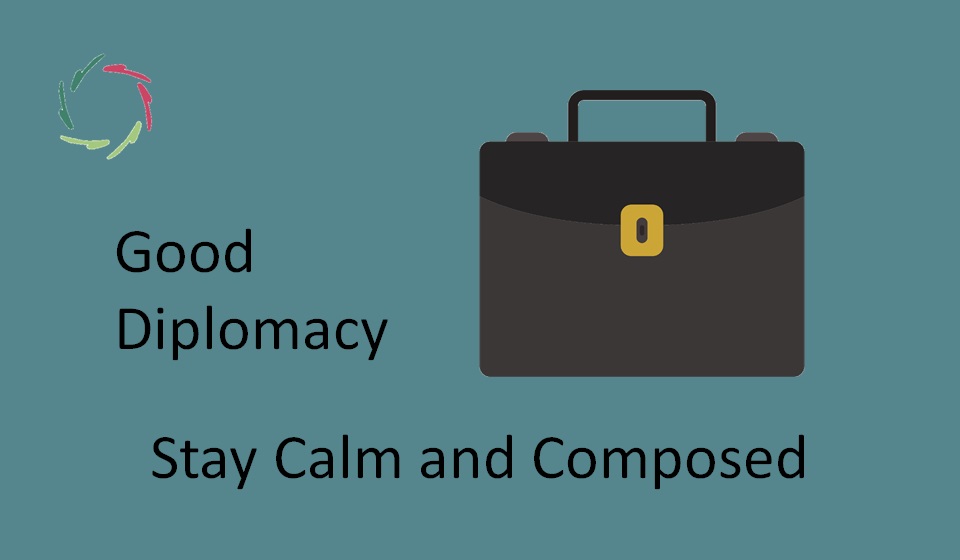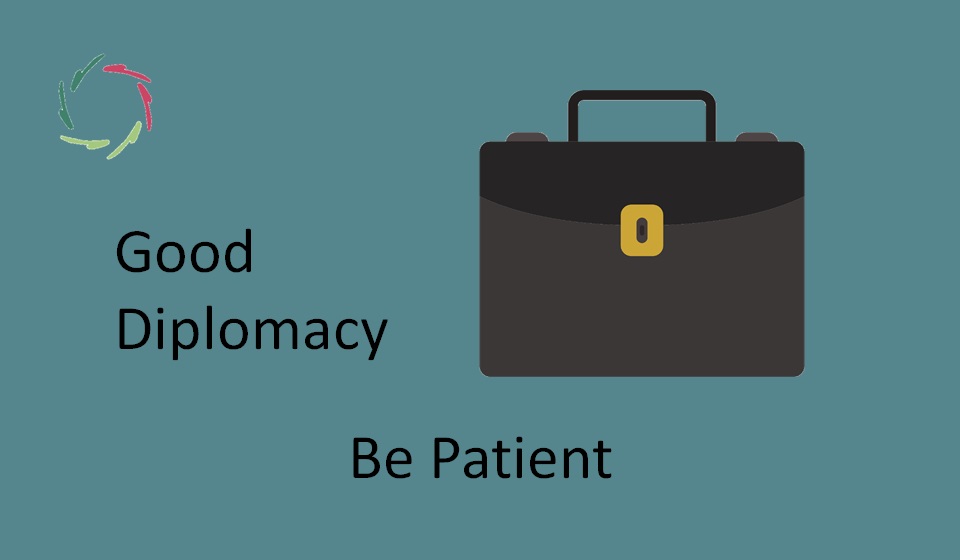Stay Calm and Composed: Keep Emotions in Check

By staying calm and composed, diplomats and negotiators can navigate challenging situations more effectively, fostering a more constructive and cooperative atmosphere.
Remaining calm and composed is crucial in any challenging diplomatic situation. It helps manage difficult scenarios and prevents escalation.
―
BEFORE TAKING THIS IN, PLEASE FIRST READ ‘TEN TIPS FOR GOOD DIPLOMACY’!
This is the third tip of the series.
―
Key Aspects
Prepare mentally and emotionally
- Before entering a challenging situation, mentally prepare yourself to stay calm.
- Example: Remind yourself of past situations where you successfully maintained composure and use those experiences as a guide.
Practice self-control
- Maintain control over your emotions, even when provoked.
- Avoid reacting impulsively to inflammatory comments or actions.
Focus on breathing and relaxation techniques
- Use deep breathing exercises or mindfulness techniques to stay centered.
- Example: Take a few deep breaths before responding to a provocative statement.
Pause before responding
- Take a moment to think before you speak.
- This helps ensure your response is measured and thoughtful.
Use positive self-talk
- Encourage yourself with positive affirmations.
- Example: “I can handle this calmly and professionally.”
Maintain neutral body language
- Use open, relaxed body language.
- Avoid crossing your arms, clenching your fists, or displaying other signs of tension.
Speak in a steady, even tone
- Keep your voice calm and steady.
- Avoid raising your voice or using an aggressive tone.
Take breaks if needed
- If the situation becomes overwhelming, request a short break to regroup.
- Example: “Let’s take a five-minute break to gather our thoughts and then continue.”
Focus on the issue, not the person
- Address the problem at hand without attacking or blaming the other party.
- Stay objective and solution-oriented.
Examples
High-stakes negotiations: During a high-stakes negotiation, one party makes a provocative statement intended to unsettle you. A calm response could be
- “I understand your frustration. Let’s take a step back and look at the facts to find a way forward that benefits both sides.”
Handling criticism: In a meeting, you receive unexpected criticism from the other party. Staying composed, you might respond
- “Thank you for your feedback. I’d like to understand more about your concerns and how we can address them together.”
Dealing with emotional outbursts: During a community discussion, a participant becomes visibly upset and emotional. A composed response might be
- “I see that this issue is very important to you. Let’s take a moment to calm down, and then we can discuss how to address your concerns effectively.”


